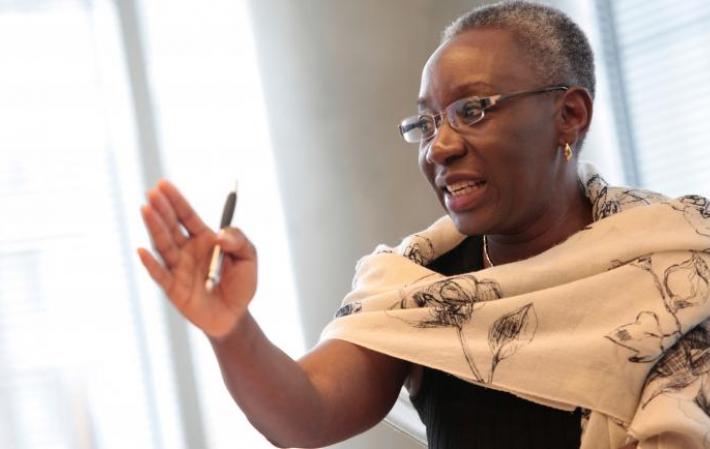
Sandra Pepera, Senior Associate and Director for NDI's Gender, Women and Democracy team.
In this episode of the DemWorks podcast, Michelle Brown, senior advisor for elections at NDI talks to NDI analyst Calvin Garner about Ukraine’s recent parliamentary elections. They discuss how advances in digital communications impact pivotal elections.
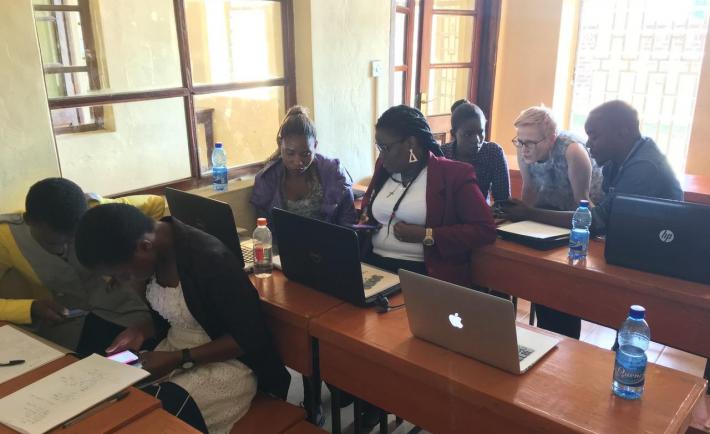
Malawian journalists at the Malawi Institute of Journalism combating disinformation during the Malawi elections.
The 2019 Presidential elections in Malawi were anticipated to be the closest elections in history for the country, and therefore, there was heightened interest, especially internationally. When an image of Tweet claiming to be from the President of the United States expressing his political preference for a particular Malawian presidential candidate was circulating, I knew the information environment was rapidly changing in Malawi. It was deep into campaign season in the southeastern African country of Malawi and a disturbing new trend emerged: digital disinformation. The constant, relentless false news stories were being spread via social media and across platforms like WhatsApp at an alarming rate. Though false news stories meant to deceive the electorate can be common around elections, especially around the electoral process and candidates, the excessive rate at which it was spreading in Malawi caught us all by surprise.
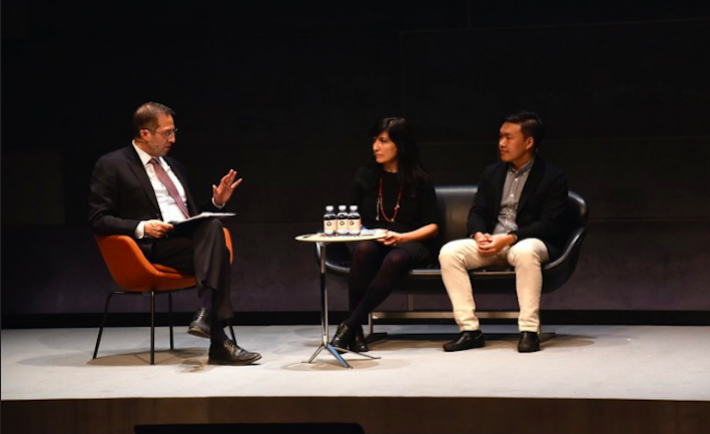
NDI president, Derek Mitchell, gives his thoughts on how to defend democracy at the Copenhagen Democracy Summit 2019.
NDI president, Derek Mitchell, gave his thoughts on how to defend democracy at the Copenhagen Democracy Summit 2019. He talks about the challenges facing democracy, how we can prepare for the impact of technology, and why democracy is succeeding.
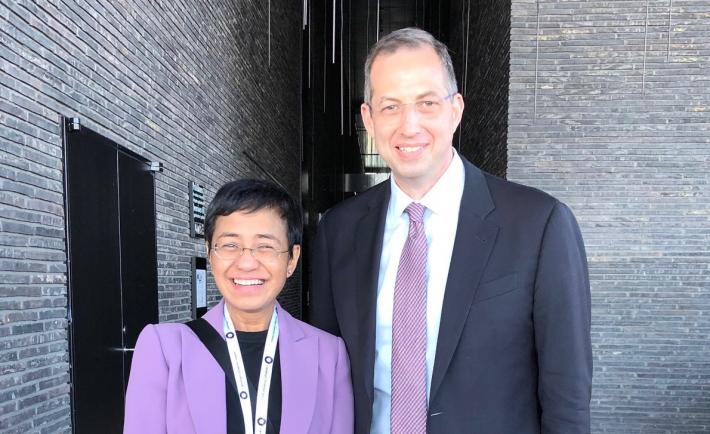
Derek Mitchell was joined by NDI partner Maria Ressa at the Copenhagen Democracy Summit to discuss topics such as the Design 4 Democracy Coalition.
In this episode of DemWorks, NDI president Derek Mitchell is joined by Maria Ressa to discuss both the opportunities and challenges that technology presents for democracy, the threat of disinformation and the ways that authoritarians are using technology for nefarious purposes.
_1_0_0_0.jpg)
Since 2014, hundreds of governments, and civic and political organizations have used DemTools, NDI’s democracy toolkit.
Since 2014, hundreds of governments, and civic and political organizations have used DemTools, NDI’s democracy toolkit. DemTools is an open-source software suite designed fill the critical needs of NDI’s partners around the world: involving citizens in decision-making, helping civil society organize for change, managing election data, and pushing their message out to thousands of people at a time.
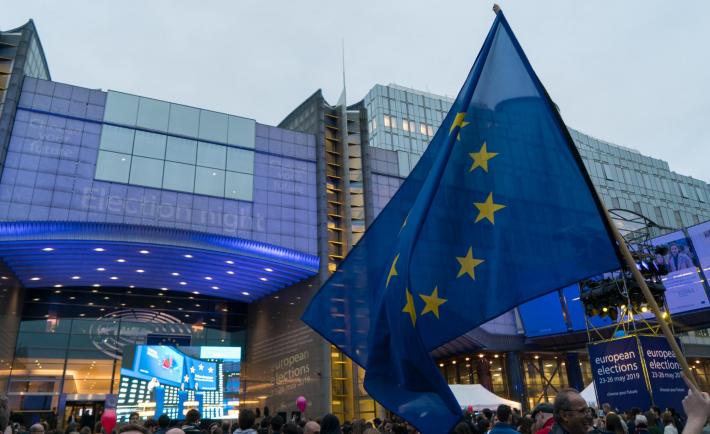
As four days of voting for the 2019 European Parliament (EP) elections closed on May 26, crowds await results from the European Union’s 28 member states and the new composition of the EP for the next five years. CC-BY-4.0: © European Union 2019 – Source: EP
The European parliamentary elections, held in May, came at a time of political soul-searching for the countries of Central Europe – the so-called Visegrad group of the Czech Republic, Hungary, Poland, and Slovakia – as they wrestle with European integration, constitutional democracy, and national identity. Though closely tied, the four countries are responding in different ways.
In this DemWorks video, we honor Pride Month 2019, which also marks the 50th anniversary of the Stonewall uprising—often referred to as the birth of the modern LGBTI movement. Today, we are speaking with Reverend Ecclesia Delange, executive director of Inclusive and Affirming Ministries (IAM). IAM works to help churches accept and support LGBTI individuals in eight African nations, by working at the intersection of gender, sexual orientation, health and religion.
On June 23, NDI partner KyivPride joined other LGBTI groups in organizing the largest Pride march ever in Ukraine, gathering about 8,000 participants from across the country. The event marks a substantial step forward for Ukraine’s lesbian, gay, bisexual, transgender, and intersex communities, which remain largely marginalized in social and political life. The event took place during the active parliamentary election campaign and against a backdrop of targeted far-right activism that has resonated with only a small subsection of the Ukrainian public.
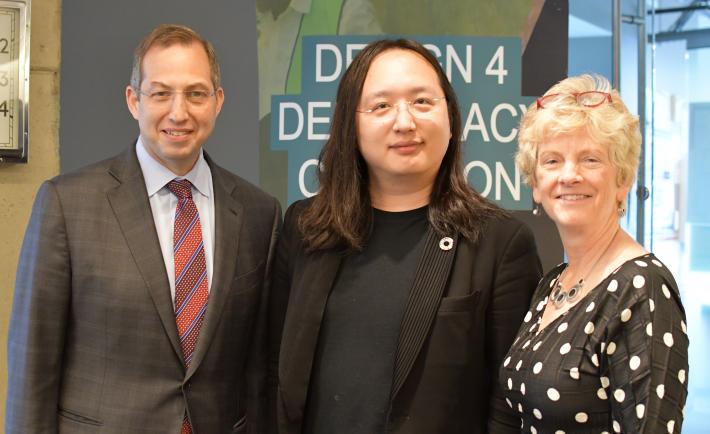
“Rethinking Democratic Government” at NDI, April 25th 2019, (left to right) NDI President Derek Mitchell, Tawain's "Digital Minister" Audrey Tang and NDI Boardmember Robin Carnahan.
Today we will interview Audrey Tang, Taiwan’s “Digital Minister.” Named one of Foreign Policy’s 100 Global Thinkers in 2019, Minister Tang is an innovator who is rethinking how government can create open, citizen-centered policies in Taiwan through what she calls “radical transparency.”
In this DemWorks crossover episode, NDI President Derek Mitchell talks to Chris Walker and Shanthi Kalathil from the National Endowment for Democracy (the NED) about the rise of authoritarian influence around the world. With a focus on China, they discuss how China’s Communist Party has survived since Tiananmen Square, the One Belt, One Road initiative, and the hard questions China’s rise poses to open societies’ most fundamental principles.